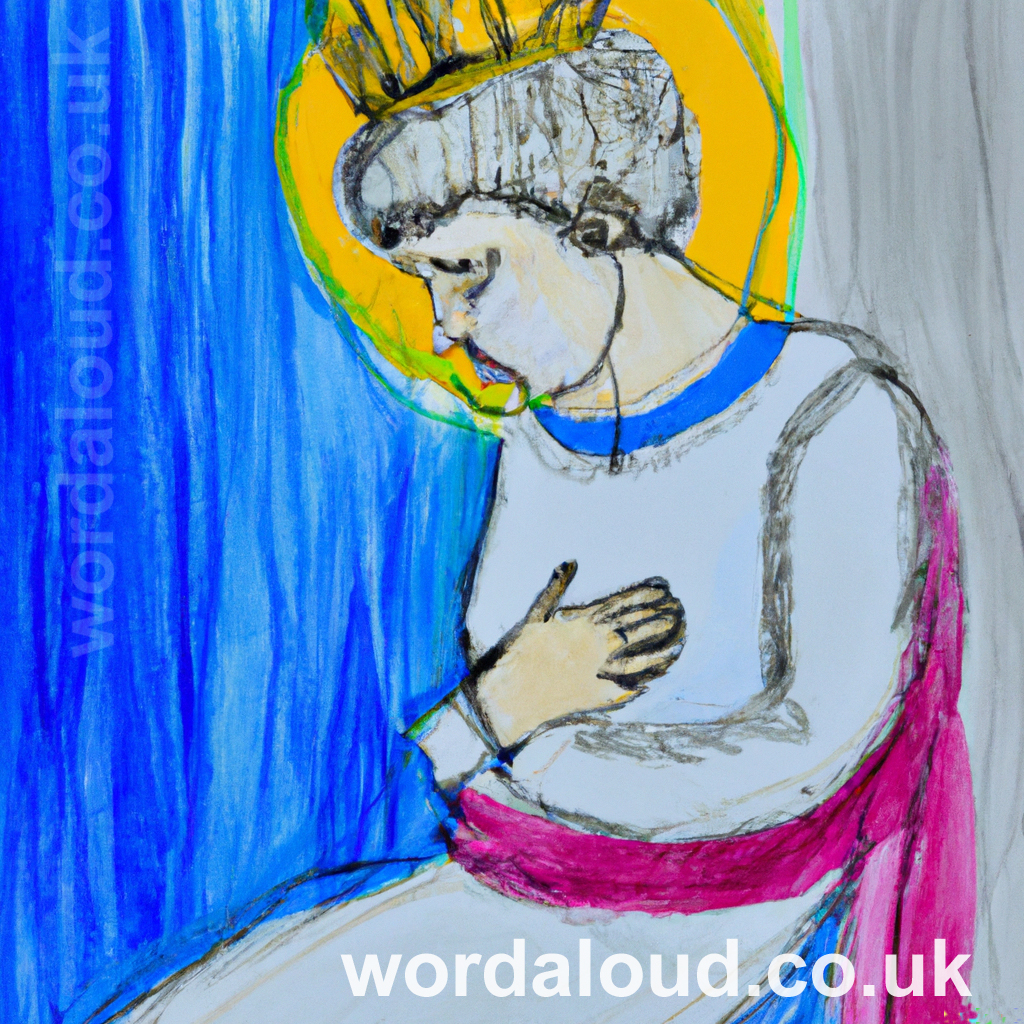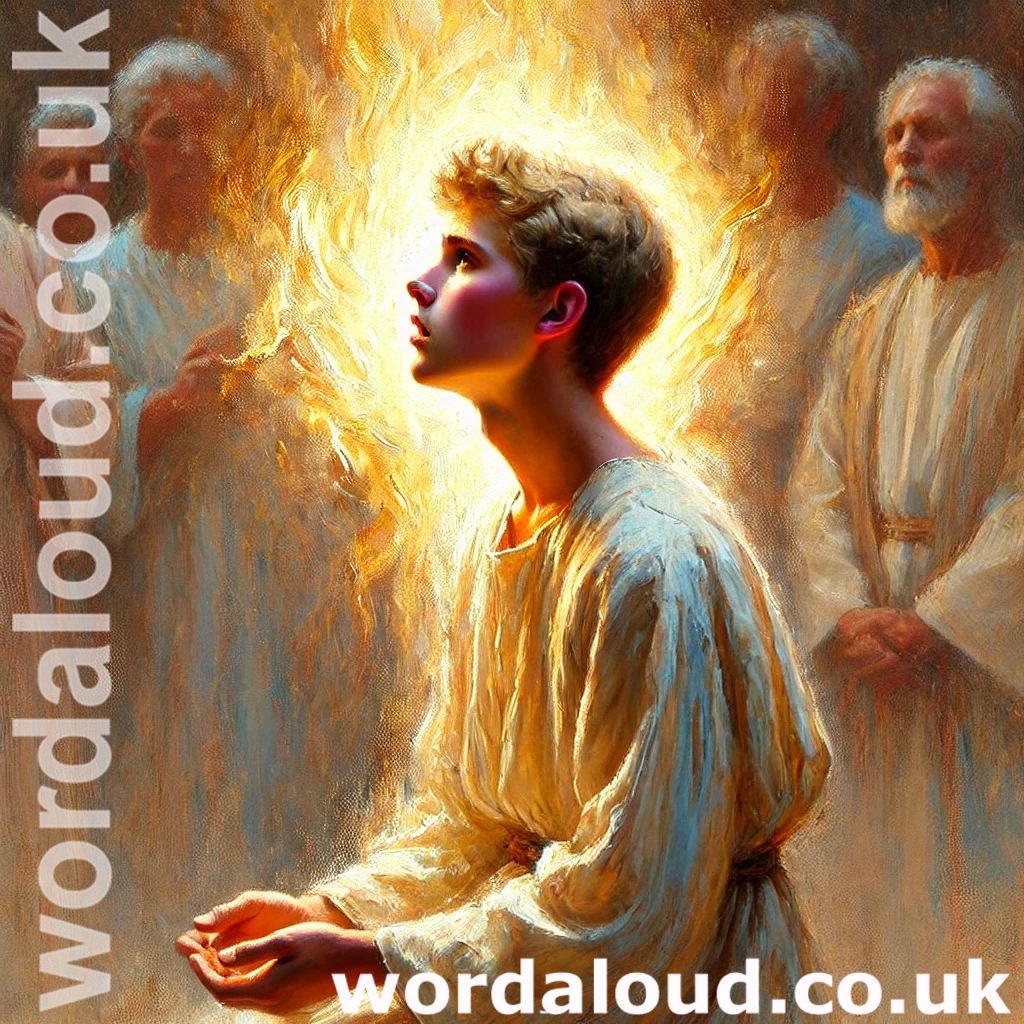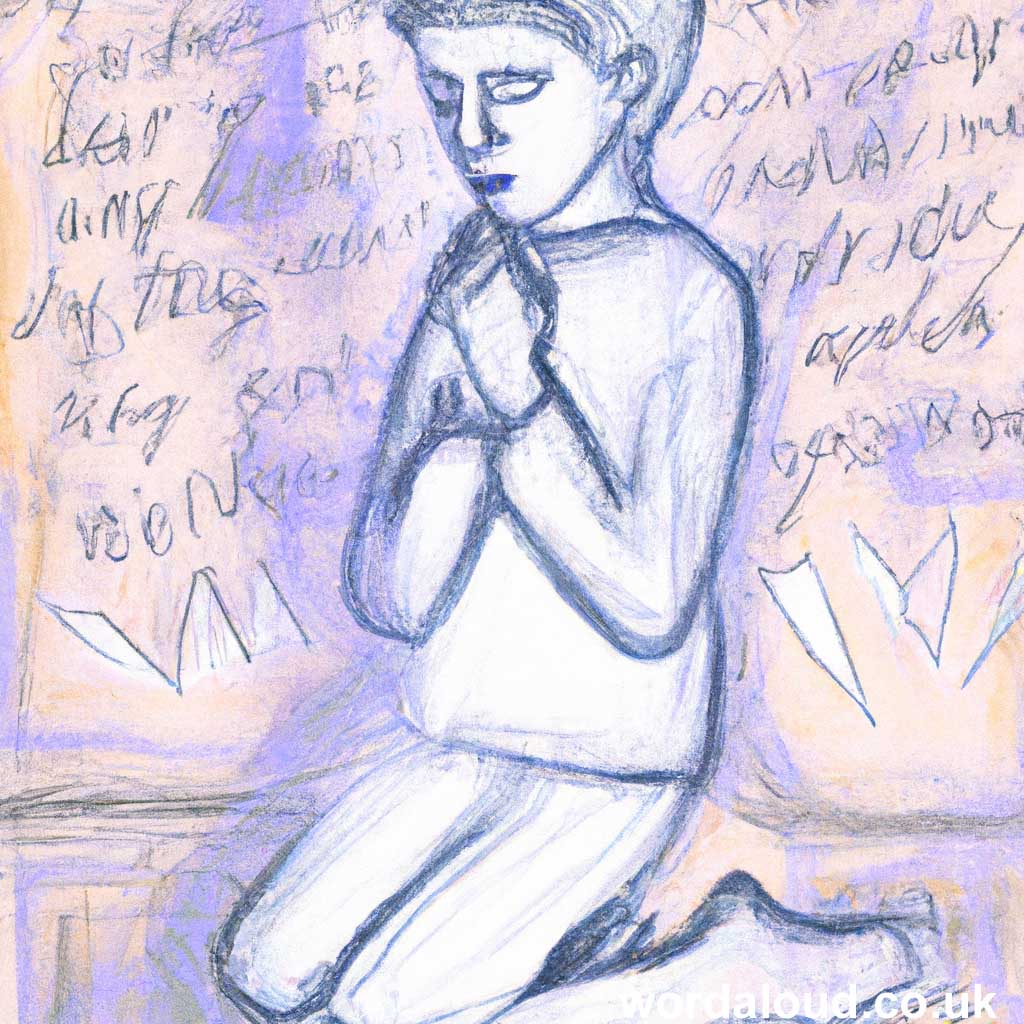John Donne | Holy Sonnets | At The Round Earth’s Imagined Corners
At the round earth’s imagin’d corners, blow
Your trumpets, angels, and arise, arise
From death, you numberless infinities
Of souls, and to your scatter’d bodies go;
All whom the flood did, and fire shall o’erthrow,
All whom war, dearth, age, agues, tyrannies,
Despair, law, chance hath slain, and you whose eyes
Shall behold God and never taste death’s woe.
But let them sleep, Lord, and me mourn a space,
For if above all these my sins abound,
‘Tis late to ask abundance of thy grace
When we are there; here on this lowly ground
Teach me how to repent; for that’s as good
As if thou’hadst seal’d my pardon with thy blood.

![]()
John Donne | Holy Sonnets | At The Round Earth’s Imagined Corners
The poem speaks within the tradition of Christian eschatology, drawing on imagery of the Last Judgment as found in the Book of Revelation. The opening command, ‘At the round earth’s imagin’d corners, blow / Your trumpets, angels,’ invokes the apocalyptic vision of angels summoning the dead from the four corners of the world. The imperative verb ‘blow’ places Donne in a position of assumed authority, yet the command is not sustained. The invocation of cosmic forces collapses into a more personal meditation on sin, repentance, and divine grace.
The enumeration of those who have died—’All whom the flood did, and fire shall o’erthrow, / All whom war, dearth, age, agues, tyrannies, / Despair, law, chance hath slain’—fuses biblical destruction with the contingencies of earthly existence. The reference to the flood places the poem within the framework of divine judgment, while the mention of fire suggests a future eschaton. The catalog of causes of death progresses from cosmic devastation to the mundane, moving from grand-scale calamities to the arbitrary workings of ‘law’ and ‘chance.’ This narrowing of scope reflects the shift from the universal to the individual, reinforcing Donne’s self-reflection.
Despite this initial invocation of judgment, Donne hesitates: ‘But let them sleep, Lord, and me mourn a space.’ Here, the call for resurrection is suspended in favor of personal penitence. The word ‘mourn’ signals recognition of guilt, and the phrase ‘a space’ suggests Donne’s awareness that time is limited. The structure of the poem enacts a reversal: rather than seeking immediate deliverance, Donne prioritizes repentance over resurrection.
The admission ‘For if above all these my sins abound’ places personal transgression in greater relief than the cosmic catastrophe previously described. Donne suggests that his own sins surpass the accumulated weight of all deaths throughout history. The phrase ‘‘Tis late to ask abundance of thy grace / When we are there’ acknowledges that repentance belongs to the present life, not to the afterlife. Donne recognizes that divine mercy is granted in the temporal world, not after final judgment. The distinction between ‘here’ and ‘there’ establishes a theological urgency: salvation must be secured before death.
The final lines, ‘Teach me how to repent; for that’s as good / As if thou’hadst seal’d my pardon with thy blood,’ position repentance as the path to divine mercy. The phrase ‘Teach me’ acknowledges human insufficiency; repentance is not a simple act but a learned discipline. The comparison to Christ’s sacrifice—’as if thou’hadst seal’d my pardon with thy blood’—suggests that true contrition allows the sinner to participate in the redemptive power of the Crucifixion. The poem thus enacts a movement from the external drama of the Last Judgment to the internal process of penitence.
By the end, Donne does not seek immediate resurrection but instead requests instruction in repentance. The sonnet, structured as a progression from grand cosmic imagery to personal introspection, demonstrates theological concern that salvation is not an inevitable event but a state that must be actively sought. Donne’s initial impulse to command the Last Judgment is replaced with humility, placing himself in a position of submission. The transition from imperative verbs (‘blow,’ ‘arise’) to the supplicatory ‘Teach me’ marks the central shift in the poem’s argument.
The theological core of the poem is its assertion that repentance is a necessary precursor to redemption. Donne, recognizing the weight of sin, acknowledges that divine grace must be received through active contrition rather than passively awaited at the Last Judgment. The final realization—that learning to repent is as good as Christ’s atoning sacrifice—places human agency within the framework of divine mercy. The poem thus transforms eschatology into an ethical imperative, shifting the focus from divine intervention to human responsibility.
![]()








